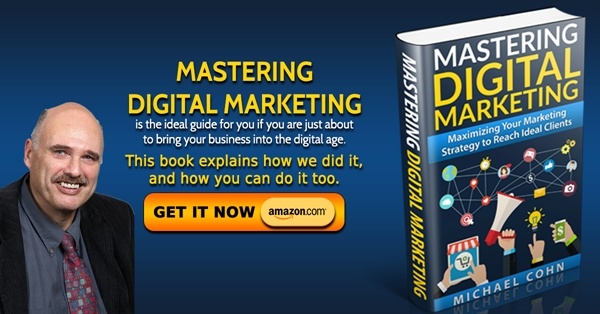Essential Small Business Website Features

When starting your small business, it is important that you create a website. Customers expect and are often disappointed when a small business they want to consider does not have one. However, when you are creating your website, there are several key components you must be sure to have.
Your logo
This may seem like a no-brainer, but you would be surprised at how many businesses forget to place their logo on each page of their website. Many put it on their homepage, but as soon as you click to another page, it disappears. Sure, it may be unlikely that a visitor will forget what site they are on, but a constant reminder is never a bad thing. Having your logo on every page is especially important if you allow social sharing on your website. If a visitor decides to share a particular page on one of their social media profiles, you want to be sure that your logo is front and center. This way, everyone will know exactly who you are.
Keep in mind that a logo is typically placed at the top left of a webpage. Breaking with this tradition may confuse visitors. Lastly, make sure that your logo always links back to your homepage. This will ensure that no matter what page your visitors are on, they can always get back easily.
[tweetthis]Your logo should always link back to your homepage.[/tweetthis]Social Media Links
Today, social media is a very important part of running and advertising your business. For this reason, it is very important to link your website to your social media profiles. Often, when potential customers begin researching a new company, they like to browse their social media pages to find out exactly who they may be buying from. Customers like to feel like they can connect with you and talk to you if needed.
If you don’t have links to your social media profiles, visitors may think that you are not trustworthy or that you are behind the times. Neither of which is good. Go a step further and make it easy for customers to share your page by including social sharing buttons. Make sure all your social media links are easy to find and in plain view. Place them in your footer as well as on the top left or right of each page.
Contact Information
Many websites omit their contact information so they can have some privacy. This is fine; however, as a small business owner, it is your job to be able to connect with your customers. At the top of every page, you should have a header with main navigation tabs that lead to different parts of your website. One of these tabs should always be a “Contact Us” tab. Your customers and potential customers should always be able to contact you with comments or questions.
It is important to the foundation of your business that you connect with and respond to your customers, so make sure they can easily reach you. This doesn’t mean you have to put your personal phone number on there, but you should include office numbers and emails. You should also put a link to your contact information in your footer so that no matter where your customers are on your site they can easily reach you.
Good content
Your website may look good and you may have all the proper tabs and copyright symbols, but none of this will matter if you do not have good content. If you are selling a product, make sure that your photos and descriptions are professional and pleasing to the eye. If you have a blog, make sure the articles are interesting and easy to read. No matter what you have as the main body of your website, it should be appealing and interesting to visitors. Create a layout that is refreshing and easy to follow. Be sure to include a copyright symbol with the current year and your company name, so that those who do visit your website will know that your content is relevant and up to date.
When it comes to optimizing your content, in general, you need to always keep in mind how important keywords and key phrases are to your online success. Your choice of keywords and key phrases should be carefully orchestrated and they should produce the results that you are looking for.
Blog
It is becoming more and more common for small business websites to have blogs. If you don’t have one, you may look as though you are behind the times. Whether the blog relates to your business niche or is of a more personal nature, it always helps to have one so that your customers can get to know you and your business on a more human level.
Customers like to see regularly updated blogs with new, relevant information. Your blog can show upcoming products, behind the scene moments, and personal stories. Whatever you choose, make it compelling so that visitors will stay on your site. A great blog shows that a business is doing well, and that is something potential customers want to be a part of.
Easy navigation
When visitors come to your page, they expect to be able to find all the information they want quickly and easily. Often, when websites are hard to navigate and the information is hard to find, visitors get frustrated and quickly leave. To make your website more navigation-friendly, start by including a search box at the top right of each of your website’s pages. Make sure that your main navigation tabs are clear and logical. Every page should be easy to read and should easily connect back to the home page.
You should have a footer at the bottom of each page so that when your customers, or first-time visitors, scroll to the bottom of a page, they don’t have to scroll all the way back to the top to get to another page. In your footer, you should also place tabs leading to your privacy policy and terms and conditions so that they are easy to find for those who would like to look over them.
Pleasing to the eye
One of the most important components of any website is its look. It is very important to have a website that is interesting to look at and holds your customers’ attention. Your website should look clean and professional. If you use a theme or bought design to dress your website, be sure that it isn’t cheap or overused. You don’t want your website to look just like everyone else’s. Be unique and memorable. Your customers and first-time visitors will be expecting a stylish layout and visually pleasing design. Keep in mind that if you don’t take great care when designing your website, your visitors may find it boring and uninspiring and will quickly leave your page to find something better.
About page
Every small business should have an about page. You want your current and potential customers to be able to get to know you. Show them the person behind the business. When people feel they have connected to you in some way it makes it easier for them to buy from you and remain loyal. Your about page should be compelling and human. This means, show who you are and why you started your business. This is a great opportunity to showcase your company’s mission statement. Focus on your values and the values of your company. Take the opportunity to boast about yourself and what you and your business can offer. Your about page can be one of your greatest assets.
Ensuring that your content is mobile-friendly
Nowadays, most business people don’t sit in front of a computer at their desk all day long. However, there is no way that those people are going to allow any interruption of their workflow or productivity. That means that they are walking around with some sort of mobile device at all times. With that in mind, you need to make sure that your content is optimized for mobile devices. That should not be too difficult to accomplish but it is important for you to understand that there are differences in optimizing for PCs and optimizing for mobile devices.
Testimonials
The best way to draw in new customers is to have a page dedicated solely to real testimonials from real customers. You want visitors to know what real people think about your business. This will help build your reputation and bring in more customers. Along with customer reviews, you should think about adding rewards you may have won or other accreditations that your company receives. All of this will go a long way in making up the minds of those potential customers who may be on the fence about you. A word of caution: do not make up false testimonials. Rely on your business and the effort you have put into it, and the reviews will come on their own.
Conclusion
Having a website for your small business is very important. Don’t just quickly throw something together. It is important to make your website as appealing and functional as possible so that you draw in new customers. Your website is a great front for your business and should be well taken care of. Your customers should always come first, and having a great website will make sure that they do.
We are pleased to provide you with the insightful comments contained herein. For a complimentary assessment of your online presence, let’s have coffee.

|



